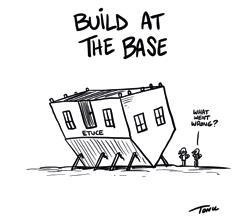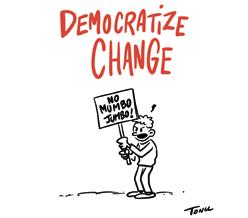
6 minute read
Ask the union
Addressing the imbalance AS an English teacher I am expected to teach a narrow curriculum of ‘dead white male’ writers. What resources are available to help address the imbalance?
Have a discussion in your school or college about how the curriculum across all subjects could embed more global perspectives. The NEU’s anti-racist framework (neu.org.uk/ anti-racism-charter) encourages a whole school/college approach and includes good sources of learning for self-educating about race and racism.
You will also find references and resources for anti-racist work, including lesson plans and materials, at neu.org.uk/black-history-month
We also recommend Our Migration Story (ourmigrationstory.org.uk – see right).
Email equality@neu.org.uk
Sick pay, contracts and cancer I WORK in an academy. Initially I was employed through an agency, then signed a three-month contract. I have recently been diagnosed with cancer and need treatment. I’m unsure how long I will be off school and am concerned about my income. I’ve been offered a ‘break’ by the school and the chance to return when I am able.
We are sorry to hear this news and we wish you a speedy recovery. You have automatic protection from disability discrimination as cancer is deemed a disability under the Equality Act. Your other rights will depend on the conditions of your fixed-term contract and the reasons for it being fixed-term rather than permanent.
If your contract would have continued were it not for your condition, your employer should keep your job open and keep paying you. Your entitlement to contractual sick pay will depend on your length of service with your current employer and your contractual sick pay scheme. If your head is able to keep your job open, this suggests that the job still exists and that you should remain employed.
The NEU AdviceLine will be able to put you in touch with an adviser and we recommend you contact the disabled members’ organising forum and Macmillan Cancer Support.
Earnings limit on pension HOW much can I earn as a supply teacher before my pension, taken in 2013, is frozen? A recent letter from Teachers’ Pensions warned me that my pension may be temporarily suspended if I exceed my earnings limit.
This relates to the ‘abatement rule’ in the Teachers’ Pension Scheme (TPS), which means that your post-retirement earnings plus pension can’t exceed your pre-retirement earnings. If this happens, the pension is frozen or ‘abated’ for the tax year.
Abatement only applies if you take up employment that is pensionable in the TPS. Teachers employed by agencies aren’t eligible for the TPS, so abatement isn’t a factor.
Abatement only applies to teachers who have retired on or after their normal scheme pension age, known as ‘age retirement’, or have taken ‘premature retirement’ where they retired early and receive an unreduced pension. Abatement does not apply to people who take actuarially reduced early retirement or a phased retirement.
The NEU disagrees with abatement. The concept is inconsistent with Government policy which seeks to promote the retention of staff in employment for as long as possible, keeping valuable skills and experience in the workforce.
The NEU also believes all teachers should have access to the TPS.
Race equality think tank Runnymede Trust’s Our Migration Story website hosts free teaching resources telling the stories of generations of migrants who shaped the British Isles. (Left) Front cover of Black Dimension magazine, February 1969, courtesy of The George Padmore Institute. Visit ourmigration story.org.uk
Please email
your Ask the union questions to educate@neu.
org.uk
Back pain and seating I SUFFER chronic back pain having spent my entire working life stooped over tables and chairs. Is there any legislative protection in place for teachers? I hate to think of future generations suffering in the same way.
Employers have a general duty under section 2 of the Health and Safety at Work Act 1974 to do all that is reasonably practical to protect workers’ health and safety. This should include avoiding prolonged standing where alternative means of doing the job are possible.
Regulation 11 (paragraph 3) of The Workplace (Health, Safety and Welfare) Regulations 1992 says: “A suitable seat shall be provided for each person at work in the workplace whose work includes operations of a kind that the work (or a substantial part of it) can or must be done sitting.”
Guidance can be found at neu.org.uk/ advice/classroom-ergonomics and neu.org.uk/ advice/computer-safety. In partnership with the Early Years Alliance, we have also produced guidance to help prevent musculoskeletal disorders (MSDs) at bit.ly/3bN6zAF
LEAVE NO CHILD BEHIND

Join our campaign now
What is our job as your union?
ON 23-24 September, around 100 education trade unionists from across Europe gathered to discuss organising education workers in rapidly changing times – engaging young and precarious education workers, and renewing education unions in terms of their strength and diversity.
The conference was called by the European Trade Union Committee for Education (ETUCE) to launch a new practical research report into trade union renewal, Your Turn.
Many unions have focused on workplace organising as the key to rebuilding and renewing their strength, noted lead author Professor Howard Stevenson, and yet the evidence suggests that organising alone, while necessary, is not sufficient to rebuild union engagement.
Successful unions have focused on organising for a purpose – to build union power to improve workers’ lives – and combined this with strengthening collective bargaining (where they negotiate directly with employers), and building alliances in political and civil society.
The conference was themed around six key areas: organising around ideas, in the workplace, around professional issues, for equalities, with community and in a crisis. In each area, key strategies were identified and positive examples shared. These ranged from the work done by the Turkish Education and Science Workers’ Union (EgitimSen) to oppose authoritarian legislation on professional autonomy, to the NEU’s campaign to keep schools and communities safe throughout Covid-19.
Of course, the key test of the ideas contained within the report and discussed at ON 3 December the NEU will join the annual celebrations of the International Day of People with Disabilities.
This year’s theme – Not All Disabilities Are Visible – focuses on spreading awareness that not all disabilities are immediately apparent and on the importance of removing barriers for all people living with a disability.
According to the WHO World Report the conference will be the extent to which they can be used to transform our unions, to give all our members a stronger voice within the union, and to change education and the workplace for the better.
As the report says: “Union renewal is not about the survival of the trade union for its own sake, but for what the union can achieve for members through their collective endeavours.” Gawain Little, NEU international committee chair




Disabled children’s right to quality education
Illustrations by Tonu
on Disability, more than one billion people globally are living with a disability. However, the Global Education Monitoring Report 2020 revealed that disabled children are 2.5 times more likely to have never been in school compared to their non-disabled peers in the world’s poorest countries.
The Covid-19 pandemic has further exposed and deepened the wider inequalities faced by disabled children and teachers.
This year, the NEU will be joining the international community on 3 December to celebrate the rights of disabled people and to reaffirm its commitment to fighting for disabled children’s right to a quality education, both in the UK and around the world.
Visit idpwd.org Tom McEwan, NEU international policy officer










